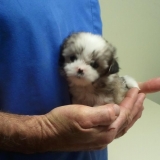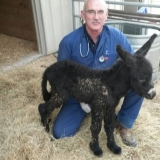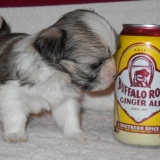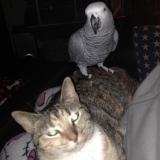Care and Common Health Issues of Guinea Pigs
What animal is so social with it's own kind that it is illegal in Switzerland to keep only one? The answer is the highly social guinea pig. For a guinea pig to be stress free and secure it needs to have at least one friend. So if you are thinking of acquiring a guinea pig, you are actually thinking about acquiring at least two.
There are a wide variety of guinea pig breeds that can be loosely grouped as haired and hairless. Among the haired breeds are all types of coats: long-haired, smooth-coated, dense-haired and swirled-hair. The haired breeds, depending on the coat type, may require brushing and maintenance to keep the coat in good condition.
Another coat consideration is parasite prevention. Guinea pigs can suffer from lice, mites and ringworm. With mite infestation, mites bury under the skin and cause intense itching and seizures.
Guinea pigs have some particular health care needs. The most important one to keep in mind is that they are obligate consumers of vitamin C. Without it, they will develop scurvy and, if left untreated, it will be fatal.
The teeth of guinea pigs grow throughout their lives. Because of this, overgrown teeth can be a problem. If you notice your guinea pig is developing mouth sours, drooling, reluctant to eat, it is time to have their teeth examined and very possibly trimmed.
Bumblefoot or sores on the feet can also plague guinea pits. It can be caused by obesity, a damp habitat or inadequate bedding. Bumblefoot requires care and habitat adjustment to effectively treat the problem.
Guinea pigs, when properly socialized, can make wonderful family pets. They can live to about eight years of age. It is always fun to watch their “popcorn” behavior when they jump and twist in the air or to listen to them chirp as they communicate with each other.
Proper feeding of your guinea pig is an important part of managing their health. They should have access to pelleted feed formulated specifically for guinea pigs as well as access to grass hay such as timothy or orchard grass. Small amounts of vegetable and fruits should be offered as well. Strawberries and green peppers are great sources of the necessary vitamin C.
Contact your veterinarian if you have any concerns about the health and well-being of your guinea pig. Many health problems can be prevented with proper nutrition and a suitable habitat.














